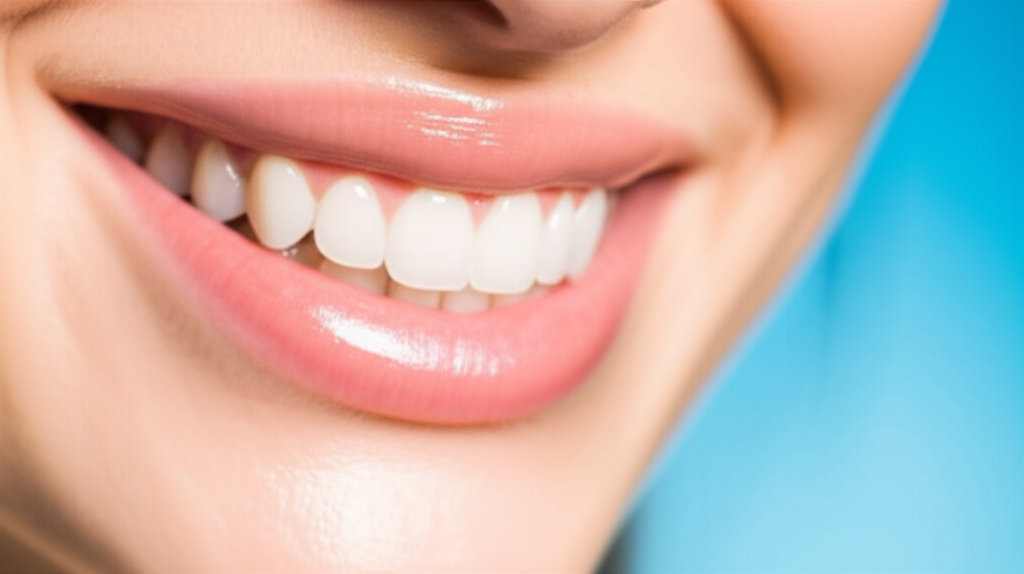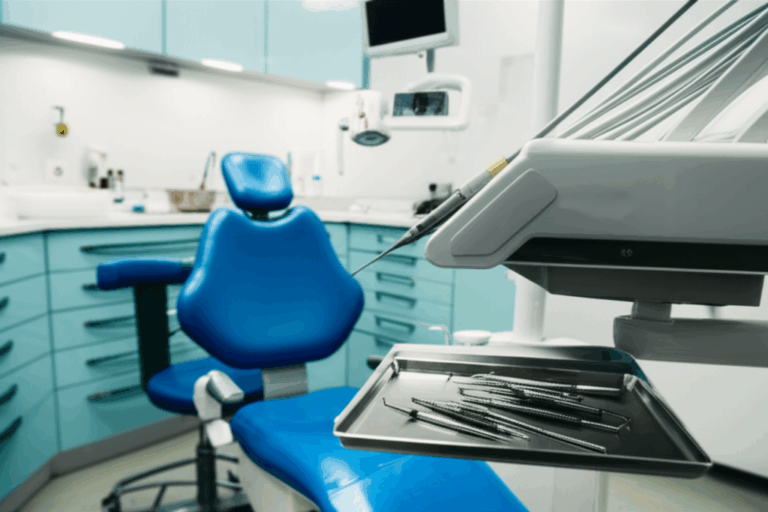
Does HUSKY D Cover Dental Implants? Understanding Connecticut Medicaid Dental Benefits
Are you wondering if HUSKY D in Connecticut pays for dental implants? You’re not alone. Many people who rely on Connecticut’s Medicaid program for adults want to know if this advanced dental service is covered. This article breaks down everything you need to know—what’s included, what isn’t, what “medical necessity” really means, and how you can explore your options even if implants aren’t covered. Read on and get clear, simple answers to your most pressing questions about HUSKY D dental coverage.
Table of Contents
What Is HUSKY D?
To keep it simple, HUSKY D is a health insurance plan for grown-ups in Connecticut who don’t make much money. It’s part of Connecticut Medicaid and run by the Connecticut Department of Social Services (DSS). If you’re an adult, don’t have kids living with you, and your income is low enough, you might get HUSKY D.
The main point? To help people get healthcare they need—including dental care—when money is tight. Think of HUSKY D as a helping hand so you don’t have to pick between your health and your wallet.
Why does this matter? If you know what HUSKY D really is, you can better see what it does and doesn’t pay for, especially for pricey things like dental implants.
What Dental Care Does HUSKY D Usually Cover?
Knowing what’s normally included can save hassle and money. Here’s a basic list:
Things Usually Paid For
- Checkups and cleanings
- X-rays to find problems early
- Fillings for cavities
- Simple tooth pulling
- Emergency care for pain, infections, or accidents
These are the basics to help you keep your mouth healthy and catch problems before they get big.
Things Rarely or Never Paid For
- Work to make teeth look nice (like whitening or veneers)
- Braces (unless it’s really serious)
- Advanced treatments (like almost all dental implants)
In other words, HUSKY D takes care of the main things, not the fancy extras.
Does HUSKY D Cover Dental Implants?
Here’s the short answer: HUSKY D pretty much never pays for dental implants.
Why? Dental implants are usually thought of as “just for looks” or “not needed”—they aren’t seen as something you must have to stay healthy. Connecticut’s Medicaid, like Medicaid in most places, focuses on basic and simple dental care.
So if you’re hoping HUSKY D will pay for a dental implant to replace a missing tooth, it most likely won’t. The rule is simple: Implants are not a normal part of adult dental benefits.
I know that’s not great news—dental implants cost a lot, and people want real answers. But, there are a few rare exceptions we’ll talk about next.
Are There Any Exceptions for Dental Implants?
Here’s where it gets tricky—but there’s a small bit of hope.
Medical Necessity: Sometimes, in really rare cases, HUSKY D might say yes to dental implants if they really are needed for someone’s health—not just wanted.
This means:
- Big accidents to the face (like a bad car crash)
- Serious jawbone problems where dentures don’t work at all
- Some cancer treatments or birth issues (if you were born with teeth missing)
These things do not happen often. You can’t just say, “Implants would be nice.” You need your dentist, oral surgeon, and maybe your doctor all saying, “Implants are the only way this person can stay healthy.”
What Do You Need for an Exception?
If you think this might be you, you should:
- Gather up records, X-rays, and doctor notes
- Show that every other treatment (like dentures or bridges) didn’t work or can’t work
- Have your dentist turn in a prior authorization form
It’s a lot of work with no promise you’ll be approved, but in very special medical cases, it can happen.
What’s the Process for Getting Implants Approved?
It’s not as easy as just asking. Here are the steps, plain and simple:
1. Talk to Your Dentist or Oral Surgeon
First, you go to your HUSKY D dentist or oral surgeon. They’ll look at your mouth, ask questions, maybe take X-rays.
2. Gather Paperwork
If they truly believe you need implants for health reasons, your providers will put together:
- X-rays and other scans
- Your medical and dental records
- Notes or letters from other doctors if needed
3. Prior Authorization
All that is sent to the Connecticut DSS for review. They look for:
- A clear, good reason you need implants
- Proof that nothing else works or is possible
- Proof that implants are really needed—not just to look nice
4. Decision or Appeal
Most requests are denied, but if you have a rare health problem—like major jawbone loss from cancer—the state might say yes. If you get a “no,” you can ask for another review, but it’s hard to win.
Table: What You Need for Medical Necessity
| Requirement | What It Means |
|---|---|
| Doctor’s Request | Dentist or surgeon must ask for the implant |
| Proof of Need | X-rays, scans, doctor notes |
| Tried Alternatives | Other treatments didn’t work or can’t be done |
| Health Impact | Implants stop you from losing more health |
What Dental Alternatives Does HUSKY D Cover?
Let’s be honest—not everyone needs an implant. These ideas can fix your smile, too, even if they’re not perfect.
Full and Partial Dentures
HUSKY D will usually pay for full or partial dentures. Dentures are a cheaper and useful answer, especially if you’re missing lots of teeth.
- There may be rules on how often you can get new ones
- Basic kinds are covered; upgrades might not be
Want details? Check removable denture lab for some info about what’s out there.
Bridges
Dental bridges are another idea—HUSKY D might pay when you’re missing just a tooth or two, and there’s a good tooth on both sides to attach it to.
- Rules can be strict: must show it’s for eating or talking, not just looks
- May need to get approved first
Big thing: HUSKY D will almost always pick something that helps you chew or talk instead of things just to look nice.
How Do I Check My HUSKY D Dental Benefits?
Getting the right info is important. Here’s how to do it:
1. Contact the Connecticut Department of Social Services (DSS)
They are the main folks in charge of HUSKY D dental benefits. Give them a call or visit their website.
- Phone: Look at your HUSKY D card or the website for the number
- Website: You’ll find answers, booklets, and forms
2. Ask Your Dentist
A dentist who takes HUSKY D knows what’s covered and what’s not, based on your case.
3. Member Handbook
If you got a HUSKY D Member Handbook, look at the dental section for what’s paid for.
Steps If You Think You Need Dental Implants
So you’re thinking, “But I really need implants. Now what?”
Problem
You have missing teeth, your denture won’t stay put, or you just want to feel whole again. Maybe you can’t eat well or you cover your smile. It’s not just about how you look—missing teeth can make life harder and hurt your confidence.
Agitate
But when you check prices, it’s scary. Implants cost thousands. Even simple fixes can seem too pricey on a tight income. Waiting might make things worse, too.
Solution
Let’s make a plan:
Where Can I Find Help for Implant Costs?
It’s tough to see how expensive implants are when insurance won’t help. Don’t give up. Try these ideas:
1. Dental Schools
Dental schools in Connecticut may help patients at lower costs, since students are learning and watched by their teachers. It might take longer, but the price is way less.
2. Community Health Centers
Many community dental clinics offer lower prices or fees based on your pay. That can help you get an implant when you didn’t think you could.
3. Payment Plans and Dental Loans
Some dentists let you pay over time, or help you sign up for medical credit to split the bill over months.
4. Discount Plans
Dental discount plans aren’t insurance, but you pay a fee to get deals on dental care. Check with your dentist or look online for these plans.
5. Grants or Non-Profits
These are rare, but sometimes there are groups who help with health costs. You might find a local grant for dental care—websites like implant cost can help you look into prices and ideas.
6. International Solutions
Sometimes, your dentist may work with a china dental lab to save money on custom dental work.
Key Takeaways
- HUSKY D usually does NOT pay for dental implants—just for very rare, serious health needs.
- Dentures and bridges are often paid for and are the real options for most.
- If you’re a rare case, work with your dentist and get all your paperwork ready.
- Check your plan directly by calling DSS, asking your dentist, or reading your HUSKY D handbook.
- Look into all other options like dental schools, clinics, and reputable dental labs.
Frequently Asked Questions: HUSKY D and Dental Implants
Does HUSKY D pay for dental implants?
Not really. Implants are only paid for in rare times when they’re really needed for medical reasons.
What if I need dentures or a bridge?
Good news—full and partial dentures or some bridges are usually okay, and are easier to get approved.
Can my dentist help me get an implant through HUSKY D?
Your dentist can ask and fill out the papers if it’s truly needed. But, unless it’s a serious health issue, most people get told no.
Do they pay for crowns or other parts if I get an implant?
Even if you get the okay for the implant post, things like the crown or abutment might not be paid for. Always ask up front about what’s included.
Where can I find cheap dental implants?
Check dental schools, clinics, dental discount plans, and providers that work with discount or international labs, like with implant dental laboratory.
Key Points to Remember
- HUSKY D and Dental Implants: Not normally paid for; only in special medical cases.
- Bridges and Dentures: Covered most of the time and good ways to fix missing teeth.
- How to Check: Always call DSS, ask your dentist, or look at your handbook for details.
- Trying for Implants Elsewhere: Find out about dental schools or clinics, and ask about labs that help with implants.
- Keep Pushing for Answers: If your dentist thinks you qualify, save all documents and ask for a review—but stay realistic.
If you want to know more about dental fixes, you can also check out dental ceramics lab or talk with a dentist who knows about implants. Always ask questions until you feel sure about your next move!
Your smile matters—don’t give up on getting the best care you can, even if your insurance has limits.








